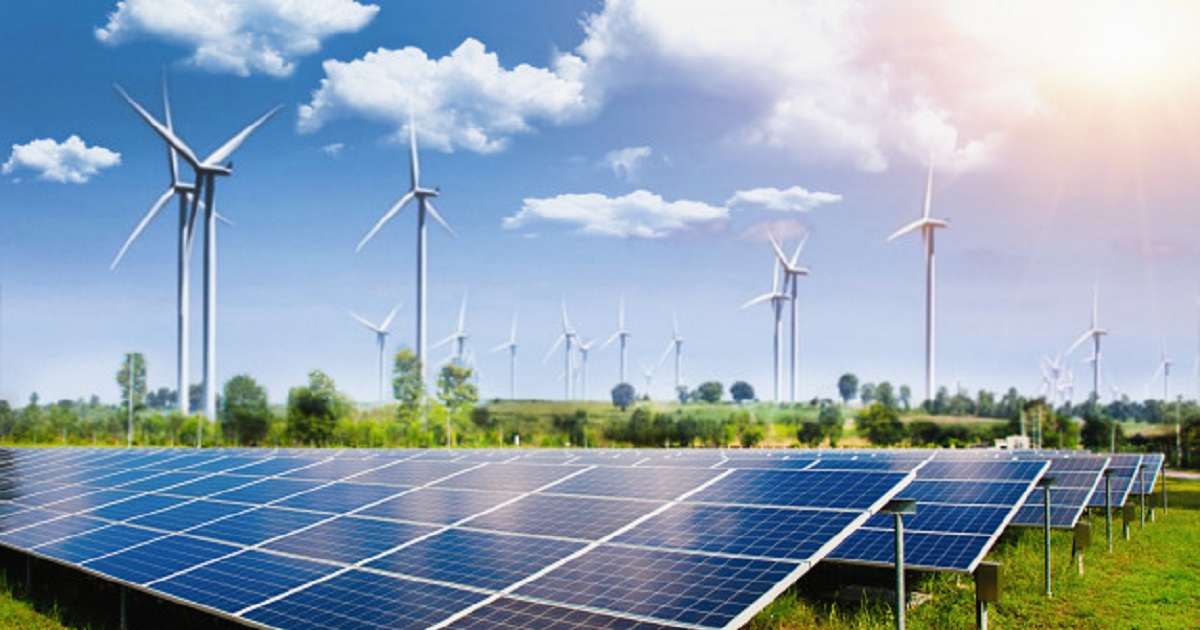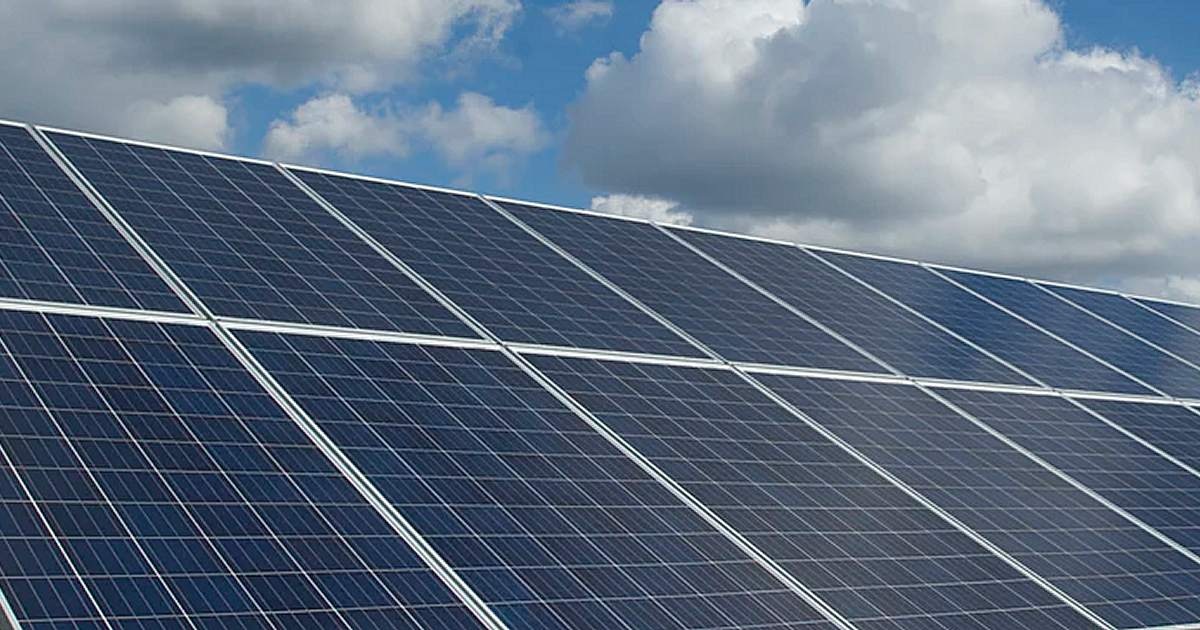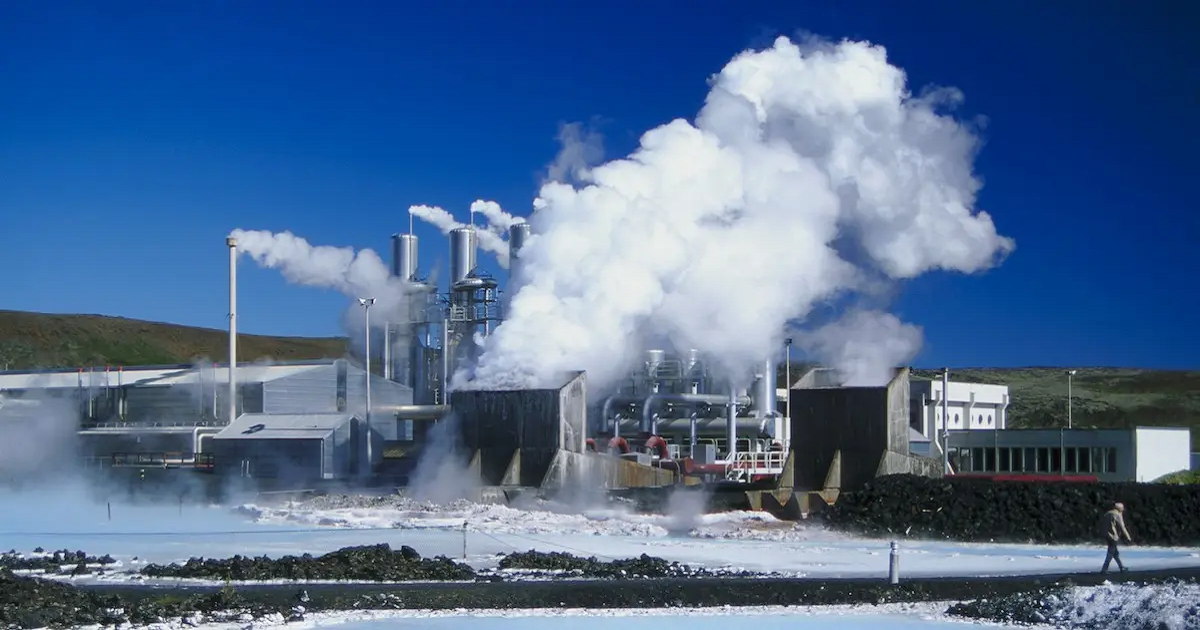
Solar+Storage
Article | June 14, 2022
Energy is an important feature in the economic and political development of a country. In developed nations like the USA, energy expansion has now reached a point where renewable energy sources also play a large part in the production of electricity.
To meet the energy demands of the country, most production of renewable energy comes from fossil fuels and other non-renewable energy sources.
Around 25% of the world’s energy is generated with renewable energy resources- mainly solar, wind, hydropower, and in some cases, geothermal. It is one of the fastest-growing electricity sources.
Renewable energy is collected from resources that are abundantly available in the environment, like the sun or wind. There has been a growing interest in renewable energy production as fossil fuels are depleting. In most parts of the world, renewable energy has become a primary source of energy production.
Renewable energy is preferred as they produce fewer greenhouse gases than non-RE sources. There are several other advantages to renewable sources like lower carbon emissions, reduced air pollution, and other socioeconomic benefits.
However, unlike non-RE sources, there are challenges in renewable energy like economic, political and regulatory barriers, structural, social, and technical challenges which require advancement in technology, and a heavy investment with a proper understanding of obstacles it faces. Some obstacles are due to technology associated with renewable energy, whereas others are because of policies, marketplace, regulations, and infrastructure.
Impact of Covid-19
The Covid-19 pandemic has brought the world to a grinding halt. It has severely impacted individuals and businesses alike, with many of the latter being closed down permanently. Similarly, the pandemic has also impacted the expansion of clean energy systems by forcefully curbing any investments.
The technology and adoption of renewables have been making uneven but sure progress. The global pandemic has slowed down this development. According to International Energy Agency, the global share of electricity supply from renewables had reached 28% in 2020 from 26% in 2019, but the growth is expected to slow down further. The total energy supply is set to reduce by 13% from 2019. This substantial decline can be attributed to supply chain disruptions, lockdown, and emerging financial problems. Transport biofuel production and renewable heat consumption are projected to decline due to lower industrial activity.
Governments have an opportunity to promote and accelerate the use of clean energy by incentivizing building, technology, and infrastructure across the country. This would be crucial to rebuilding the economy, create jobs, and build efficiency.
Capital Costs and Investment
The most obvious challenge of widespread adoption of renewables is cost, predominantly infrastructure costs like building and installing solar and wind power plants. Although it is quite cheap to operate and maintain solar and wind power plants, installation becomes more and more expensive.
Over the last few years, even though the prices of installation of solar panels has fallen significantly, it remains higher than non-renewables. On average, a 2-kilowatt solar panel system costs $4,159 after tax credits, whereas the capital cost of a gas-fired power plant would cost lesser than that.
In the last two years, investment in renewables has increased, but that is only because the investments in fossil fuels have been rapidly falling. Clean energy investments still fall short of what is necessary to convert into a more sustainable future. To ensure continuous investment in sustainable energy, policymakers have to focus on short investment turnaround, focus on rapid environmental gains favoring cleaner energy generation.
Power on demand
One of the most significant challenges of renewables is the ability to provide power on demand. In the case of solar power, you only get energy during the day and only when it is sunny. As for wind energy, power is generated only when it is windy. There is an intermittent generation of power in renewables which wouldn’t be a problem if there were appropriate energy storage solutions. The biggest test in providing power on demand is storage. Even if homes, businesses, or states install wind energy systems or solar panels, storing the generated energy is still an unsolved issue.
Opponents of renewable energy highlight the reliability factor on solar and wind to augment support for coal, gas, and nuclear plants, which provide baseload power. This argument is used by lobbyists to drive out investment into renewables, thus becoming a barrier to widespread adoption of wind and solar energy.
Location challenges
Renewable energy plants have grids that require a large area of land. It can be unappealing to customers to switch to renewable energy sources as it is conditional depending on the size of the land. Not all states and regions are apt to build solar panels or have wind turbines as they are dependent on the geographical location. For example, building solar panels in California makes more sense than building them in New York as the former has an abundant supply of both sun and land.
Renewables operates on what is known as a decentralized model. In a decentralized power plant, small generating stations are spread across a larger area that works collectively to deliver power. In the case of coal, nuclear power, or natural gas, they are highly centralized and depend on fewer high output power plants.
Siting
Decentralized systems prove to be a problem for siting and transmission of energy created by solar or wind. Siting is needed to move blades or solar panels to large pieces of land. To do so requires to draw up contracts, negotiate, acquire permits, or build community relations; all of this can delay or kill a renewable project even before it begins.
Businesses can incur additional charges due to demand and delivery which seems like a significant challenge for them. Utility services apply these charges to recover costs of purchasing energy and maintaining power lines and energy lost in the transmission system. Moving power sources closer to your business will help you avoid such preventable expenses.
Transmission
The next challenge to overcome in renewables is the transmission of generated electricity. Transmission means the transfer of electricity from where it is generated to where it is consumed. Most transmitters that exist in this day and age are built for coal and other fossil fuels and not renewables. To make things easier for transmission of clean energy, there needs to be a significant infrastructure and technological development, which cost a lot of money.
Making the economics work with financing and siting can prove costly for developers and customers alike.
Policies and Regulations
Unfortunately, the fossil fuel industry is backed by multi-billionaires who wield a considerable amount of political influence. This severely affects the chances of expansion for the renewable industry. Industry experts estimate that the USA spends upwards of $60 billion on subsidies for fossil fuels every year. The taxpayers have helped fund the industry’s research and development, drilling, mining, and generation of electricity. Renewables like wind and solar enjoy much lesser subsidies and political backing. The fossil fuel industry has used its enormous power to spread misinformation about climate change.
To increase public interest and investment in renewables, there need to be clear and concise legal procedures and regulatory policies. Having proper regulations in place creates a stable environment for investment and overcome hurdles and can anticipate the revenue streams. Large-scale renewable energy projects require a large amount of capital which is hindered by the failure of proper policies that fail to attract private players.
Frequently Asked Questions
What is a major challenge with using more renewable energy?
Renewable energy is competing with fossil fuels and nuclear technology. Other major challenges include underdeveloped infrastructure and lack of economies of scale.
What are the benefits of using renewable energy?
Some benefits of using renewable energy are lower energy costs, reduction of emissions, massive positive impact on environment, and marketing opportunities for businesses.
Is renewable energy cheaper than fossil fuels?
Fossil fuels are subsidized which makes it cheaper at the beginning. However, renewables get cheaper to maintain over the years hence making it cheaper than fossil fuels.
What is the cheapest source of renewable energy?
Solar PV and on site wind are the cheapest sources of renewable energy sources.
{
"@context": "https://schema.org",
"@type": "FAQPage",
"mainEntity": [{
"@type": "Question",
"name": "What is a major challenge with using more renewable energy?",
"acceptedAnswer": {
"@type": "Answer",
"text": "Renewable energy is competing with fossil fuels and nuclear technology. Other major challenges include underdeveloped infrastructure and lack of economies of scale."
}
},{
"@type": "Question",
"name": "What are the benefits of using renewable energy?",
"acceptedAnswer": {
"@type": "Answer",
"text": "Some benefits of using renewable energy are lower energy costs, reduction of emissions, massive positive impact on environment, and marketing opportunities for businesses."
}
},{
"@type": "Question",
"name": "Is renewable energy cheaper than fossil fuels?",
"acceptedAnswer": {
"@type": "Answer",
"text": "Fossil fuels are subsidized which makes it cheaper at the beginning. However, renewables get cheaper to maintain over the years hence making it cheaper than fossil fuels."
}
}]
}
Read More

Energy, Industry Updates
Article | July 29, 2022
Despite rising energy costs and dwindling customer ratings of the ‘Big Six’, over 37% of Brits still believe they are getting a good deal when it comes to gas and electricity.
Here, Keith Bastian, CEO of rising independent Outfox the Market, challenges those age-old perceptions that are damaging consumer bank balances…
I have never quite understood the notion of pay more for the same service. Except that last part, is really where the difference lies.
As I have made my way through the energy market, it seems clear to me that we are facing a common notion.
Age-old dinosaurs, that have relied on name status and brand power to retain customer loyalty, despite not providing anything different or any value-added service, give the impression that customers are somehow safer with them. That is the biggest misconception.
We at Outfox the Market would like to challenge that.
Of course, when I speak in such a way, I am referring to the ‘Big Six’, those long-established brands whose share in the energy market whilst substantial, is increasingly coming at the cost to its customers.
For example, in the latest independent customer rankings from Which, it was determined that the traditional big energy companies had some of the lowest scores for customer service and value for money, yet some customers still feel secure with them.
On the contrary, rising independents, such as ourselves, were scoring highly in these areas and this is where I feel the difference lies.
Regardless of your opinion on fossil fuels and/or renewables, it is more the value of looking after your customers, understanding their concerns and dealing with them efficiently that has become somewhat lost for the ‘Big Six’.
It is true that they have a larger proportion of customers to serve with a larger workforce, but that should not be to the detriment to the service they provide.
What were are seeing now, as evidenced by the recent Ofgem price hikes, is the ‘Big Six’ once again failing consumers in these areas, with most of the top names putting costs up by £96 a year on average as of April.
I am not one to not acknowledge that energy firms are tongue-tied in some respects in passing regulated costs on; there are times when we must. However, customers could also benefit from a little research.
Even with growing numbers of consumers switching, nearly 60% of all households in the UK are still on standard variable rate tariffs, those that are subject to the incoming Ofgem hikes.
So, the real question is why aren’t more customers switching? Heritage, loyalty and brand association. These facets really should not come at cost of paying more for energy.
I really believe it is down to time-sensitivity and a misunderstanding around the barriers to switching, with cost somewhere in the middle.
According to MoneySuperMarket, 75% of us would switch if we could save £149.99. A hefty figure, but why not the £96 highlighted earlier? That is still pretty good, and something that would add up nicely over the years.
I understand we are time-poor as a nation, it’s well publicised, but we’re all well averse in switching phone contracts and insurance deals, so why not where our energy comes from?
Truth be told, I believe it’s an age-old notion that energy is ‘just something that comes with the house, not worth the hours or hassle to change.’
But in all honesty, it takes a matter of seconds to switch. Firms such as ourselves offer this and more via a quick and easy quote online. Best of all, many energy providers will help manage the switching process for you, contacting your current provider and notifying them of your intentions.
I would also like to challenge this notion that once an energy firm ‘gets you’, you are ‘locked in’ for years upon end in ever rising contract costs.
If you are on a standard variable tariff, you can switch to a new provider at any time. What’s more, even if you are in a fixed term energy deal, which can be subject to exit fees, sometimes the cost involved outweighs the savings you can make with your new provider.
Customers must do their best to ask more of energy firms, check the service they are being given and hold it up against national bill averages. Compare what your neighbours, friends and family are paying under similar living circumstances, and weigh up if you are being given a fair deal.
Living costs and regulated price hikes are always going to be an ever present worry, so I call on both customers and energy firms to do their due diligence in these respects.
Age-old energy firms relying on their reputation must take a serious inward look at their lessening market share to understand why they are failing customers.
It’s time to make a change now, both from business attitude and a consumer standpoint; switching is quick, easy and a vital notion to bear in mind, as both retaining custom and saving money becomes an ever-growing sticking point in the energy market.
Read More

Strategy and Best Practices, Industry Updates
Article | August 16, 2022
SA Water’s electricity supply is about to become greener and cheaper again with the addition of another major solar power system, and an even bigger installation to soon follow.
The utility says more 7,300 solar panels installed at the second pump station on its pipeline between Swan Reach and Stockwell are now connected and ready to go.
“The Swan Reach to Stockwell Pipeline spans across more than 50 kilometres inland from the mighty Murray across to the northern Barossa area, and therefore requires significant energy to pump clean, safe drinking water across such large distances,” said SA Water’s Nicola Murphy
While the total capacity of this new solar farm wasn’t provided, Ms. Murphy said it will generate approximately 5,224 megawatt hours of clean, green energy annually. There’s more solar energy to come for this section of pipeline, with a further 16,000 panels currently being connected at the first pump station.
Read More

Article | April 16, 2020
To maintain the goals of the Paris Agreement and save the Earth from ecological breakdown, one of the most important things experts agree we need to do is transition to a renewable energy economy. While most of us may associate renewable energy with wind energy and solar energy, there are several other sources of clean energy that are growing in popularity. One such source is geothermal energy.
Read More